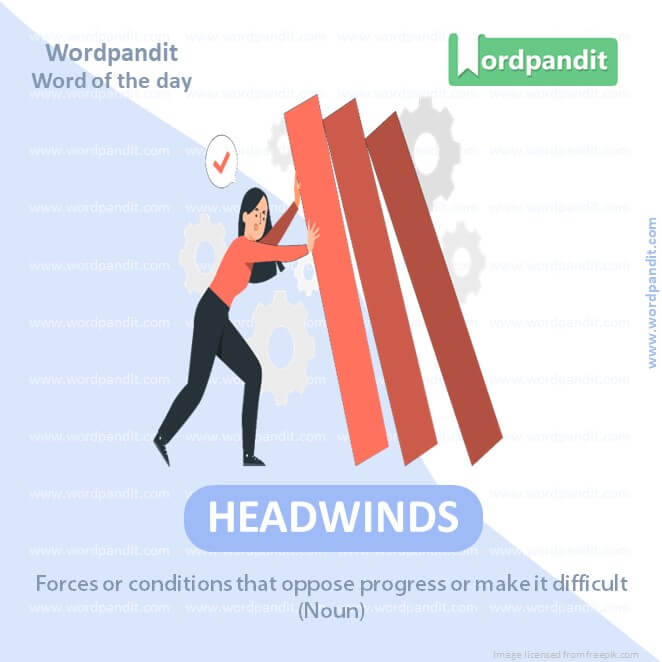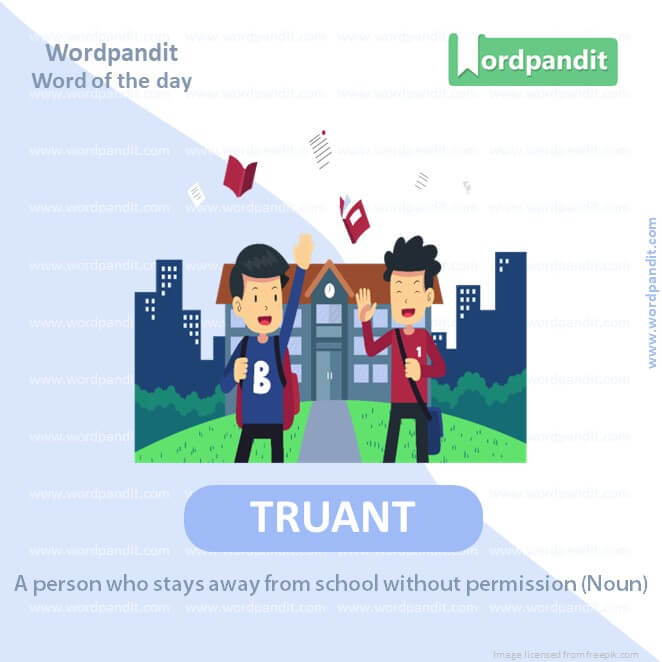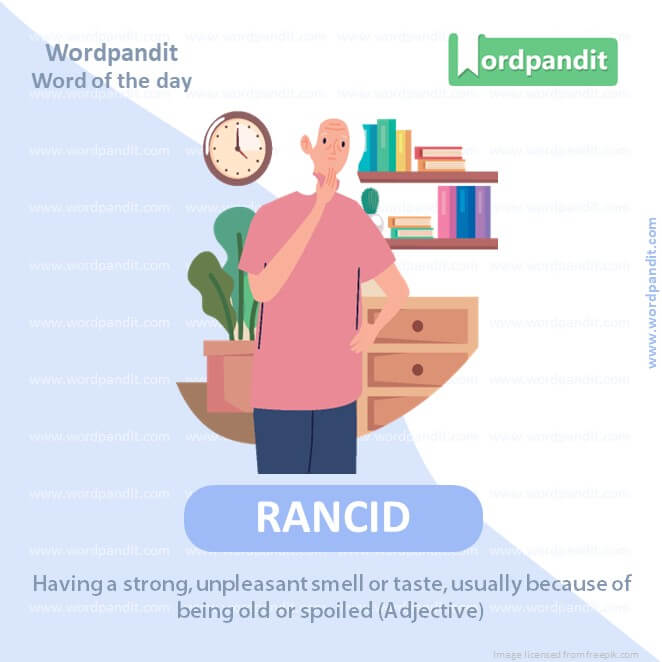Daily Vocabulary Words: List of Daily Used Words in Leading Indian Newspapers
Hi there. Welcome to this special section @ Wordpandit. Our endeavour here is straightforward: highlighting daily vocabulary words that you would come across in leading newspapers in the country. We have included the following newspapers in our selection:
• The Times of India
• The Economic Times
• Hindustan Times
• Mint
• Indian Express
We are putting in extensive work to develop your vocabulary. All you have to do is be regular with this section and check out this post daily. This is your repository of commonly used words; essentially, we are posting a list of daily used words. Hence, this has significant practical application as it teaches you words that are commonly used in leading publications mentioned above.
Visit the website daily to learn words from leading Indian newspapers.

WORD-1: SPURRED
CONTEXT: Construction surged 7.9 per cent over a high base, and on the back of government capital expenditure (capex), a pickup in real estate activity and lower input prices. That is likely to have spurred employment growth in construction — a labour-intensive sector.
SOURCE: The Indian Express
EXPLANATORY PARAGRAPH: Imagine you’re riding a horse and you gently tap its sides with your heels to make it go faster. That’s like what “spurred” means. When someone is “spurred” to do something, it means something has poked or nudged them to take action or speed up.
MEANING: Encouraged or pushed into action or greater speed (Verb).
PRONUNCIATION: spurr-d
SYNONYMS: Urged, encouraged, motivated, goaded, prodded, stimulated, prompted.
USAGE EXAMPLE:
1. The news of the competition spurred her to practice more.
2. The crowd’s cheers spurred the team to victory.
3. His failing grades spurred him to study harder.
4. The accident spurred the government to improve road safety.

WORD-2: HEADWINDS
CONTEXT: In the second half, other headwinds would come into play, all of which could impact demand and industrial production. One is the slowdown in the West, particularly Europe.
SOURCE: The Indian Express
EXPLANATORY PARAGRAPH: Imagine you’re riding a bike and the wind is blowing directly into your face. It’s harder to pedal, right? “Headwinds” are like that wind. They are problems or challenges that make it more difficult to do something.
MEANING: Forces or conditions that oppose progress or make it difficult (Noun).
PRONUNCIATION: head-win-dz
SYNONYMS: Obstacles, setbacks, hindrances, barriers, difficulties, impediments
USAGE EXAMPLE:
1. The company faced several headwinds, including increased competition.
2. The project encountered headwinds due to lack of funding.
3. She overcame many headwinds to achieve her dream.
4. The economy is currently experiencing headwinds.

WORD-3: TRUANT
CONTEXT: Three, the monsoon continues to play truant. After a deficient June and above-normal July, rains have again slipped below the long period average (LPA).
SOURCE: The Indian Express
EXPLANATORY PARAGRAPH: You know how sometimes you don’t want to go to school? Well, a “truant” is someone who skips school without a good reason, and that’s not okay because you miss learning important things!
MEANING: A person who stays away from school without permission (Noun).
PRONUNCIATION: troo-uhnt
SYNONYMS: Absentee, delinquent, dodger, skiver, hooky-player
USAGE EXAMPLE:
1. Billy became a truant because he disliked his teacher.
2. The school has a program to help truants return to class.
3. Truants often miss out on important lessons.
4. The principal called the parents of the truant students.

WORD-4: RANCID
CONTEXT: Chopra’s respect for the efforts of the man who turned out to be his closest competitor at the Budapest Worlds, Pakistan’s Arshad Nadeem, has been constant since they first competed. And the warmth is reciprocated in equal measure by the Commonwealth Games champ and 90m+ javelin pro. In these relentlessly rancid political times, this is a welcome throwback to the Milkha Singh-Abdul Khaliq era, both of whom could rise above the trauma of Partition to represent their respective nations without falling into rancour.
SOURCE: The Indian Express
EXPLANATORY PARAGRAPH: You know how milk smells bad when it’s old? That’s “rancid.” It means something, especially food, has gone bad and smells or tastes nasty.
MEANING: Having a strong, unpleasant smell or taste, usually because of being old or spoiled (Adjective).
PRONUNCIATION: ran-sid
SYNONYMS: Spoiled, rotten, stale, sour, putrid
USAGE EXAMPLE:
1. The butter had turned rancid and smelled awful.
2. I threw away the rancid meat.
3. The oil in the pantry had become rancid.
4. The rancid smell filled the room.

WORD-5: RANCOUR
CONTEXT: Chopra’s respect for the efforts of the man who turned out to be his closest competitor at the Budapest Worlds, Pakistan’s Arshad Nadeem, has been constant since they first competed. And the warmth is reciprocated in equal measure by the Commonwealth Games champ and 90m+ javelin pro. In these relentlessly rancid political times, this is a welcome throwback to the Milkha Singh-Abdul Khaliq era, both of whom could rise above the trauma of Partition to represent their respective nations without falling into rancour.
SOURCE: The Indian Express
EXPLANATORY PARAGRAPH: Imagine you’re really, really mad at someone and you can’t stop thinking about it. That angry feeling that won’t go away is called “rancour.”
MEANING: Long-lasting bitterness or resentment (Noun).
PRONUNCIATION: rang-ker
SYNONYMS: Bitterness, resentment, animosity, hostility, ill-will
USAGE EXAMPLE:
1. His rancour towards his coworker was noticeable.
2. They managed to resolve their differences without any rancour.
3. Rancour filled the room during the debate.
4. She held no rancour against her critics.
WORD-6: JINGOISTIC
CONTEXT: So far, Chopra has remained unchanged in how he carries himself after medals. Indian wins at the highest sporting levels are hard to come by, and one reason fans lose perspective and turn every rare medal jingoistic.
SOURCE: The Indian Express
EXPLANATORY PARAGRAPH: Imagine someone who thinks their country is the best and doesn’t like people from other countries. This person is so loud about it that they don’t listen to anyone else. That’s being “jingoistic.”
MEANING: Extremely patriotic in a way that suggests a belief in the superiority of one’s own country over others (Adjective)
PRONUNCIATION: jin-go-ist-ik
SYNONYMS: chauvinistic, nationalistic, xenophobic, flag-waving, ultra-patriotic
USAGE EXAMPLE:
1. His jingoistic attitude was off-putting to international students.
2. The politician’s jingoistic speech worried many people.
3. The film was criticized for its jingoistic portrayal of history.
4. Some people found the advertisement to be jingoistic.
WORD-7: BRUTE
CONTEXT: With a smooth, flexible action that stays consistent, he wins gold, never needing brute power. Who else but him to firmly put out the rabid fires of muscular nationalism that can char sport?
SOURCE: The Indian Express
EXPLANATORY PARAGRAPH: You know how in some stories there are big, mean creatures that are not nice and just use their strength to bully others? That’s a “brute.”
MEANING: A person or animal that is cruel, rough, and relies on physical strength rather than intelligence (Noun)
PRONUNCIATION: broot
SYNONYMS: bully, beast, thug, savage, barbarian
USAGE EXAMPLE:
1. The villain in the story was a real brute.
2. He behaved like a brute at the party.
3. That dog can be a brute if not trained properly.
4. The boxer was strong but not a brute; he was actually very kind.
WORD-8: RABID
CONTEXT: With a smooth, flexible action that stays consistent, he wins gold, never needing brute power. Who else but him to firmly put out the rabid fires of muscular nationalism that can char sport?
SOURCE: The Indian Express
EXPLANATORY PARAGRAPH: Imagine being so excited about something that you can’t stop talking about it and you get really, really loud. That’s being “rabid” about something.
MEANING: Extremely enthusiastic or passionate; having or expressing an extreme and unreasonable anger or hatred (Adjective)
PRONUNCIATION: rab-id
SYNONYMS: fanatical, fervent, zealous, extremist, passionate
USAGE EXAMPLE:
1. He’s a rabid fan of the local soccer team.
2. Her rabid opposition to the proposal was surprising.
3. The community was concerned about a rabid raccoon in the area.
4. The debate turned ugly due to his rabid viewpoints.
WORD-9: SUSTENANCE
CONTEXT: They nourish soil, create carbon sinks, provide sustenance to all manner of creatures and are a crucial part of nature’s clean-up committee.
SOURCE: The Indian Express
EXPLANATORY PARAGRAPH: You know how you need food to stay strong and healthy? “Sustenance” is a big word that means anything that helps you stay healthy, strong, and keep going.
MEANING: Food, nourishment, or other forms of support that maintain life or health (Noun)
PRONUNCIATION: suh-stuh-nuhns
SYNONYMS: nourishment, nutrition, food, fuel, provisions
USAGE EXAMPLE:
1. The family had enough sustenance to last through the winter.
2. Books provided emotional sustenance during difficult times.
3. The charity provides sustenance for homeless people.
4. A balanced diet is vital for proper sustenance.
WORD-10: DENIZENS
CONTEXT: They nourish soil, create carbon sinks, provide sustenance to all manner of creatures and are a crucial part of nature’s clean-up committee. And yet, the hardworking denizens of the fungal kingdom have long suffered from an image problem.
SOURCE: The Indian Express
EXPLANATORY PARAGRAPH: Imagine a big, beautiful forest. All the animals that live there, like the birds, the deer, and the bugs, are called “denizens.”
MEANING: Inhabitants or regular visitors of a particular place (Noun)
PRONUNCIATION: den-ih-zens
SYNONYMS: residents, inhabitants, occupants, dwellers, natives
USAGE EXAMPLE:
1. The denizens of the forest were disturbed by the construction.
2. The coffee shop was popular among the denizens of the neighborhood.
3. The lake is home to various denizens such as fish and turtles.
4. Tourists and denizens alike enjoy the city’s annual festival.
Vocabulary Meaning
Bolstering your linguistic assets often means learning a range of new words. But knowing a word in isolation often lacks impact if we don’t understand its vocabulary meaning. So, how do we effectively grasp vocabulary meanings? Let’s dive into some successful strategies.
Firstly, when expanding your word repertoire, it’s essential to understand the vocabulary meaning in context. Reading is a robust method that introduces words used in particular settings or themes. Familiarizing yourself with vocabulary meaning through sentences not only aids understanding but also shows the unique nuance and connotation of words.
Another instrumental approach in learning vocabulary meaning lies in creating a personal word bank. Document each new word, its definition, and an example sentence that showcases its usage. Review this word bank daily to reinforce vocabulary meaning effectively. It provides a quick and active review that strengthens recall.
Next, mnemonic techniques can significantly enhance memory retention of vocabulary meaning. These strategies connect new knowledge to existing knowledge through cues, imagery, and associations. Whether you associate a word with a picture, a sound, or a piece of personal memory, it aids in remembering the vocabulary meaning.
Moreover, incorporating your newly acquired words into your daily life allows for practical application and solidifies their vocabulary meaning. Be it in conversation, emails, or social media posts, using these words actively ensures they are integrated into your long-term memory.
Lastly, develop a sense of curiosity about language. Unravel root words, investigate word origins and evolution, and you’ll see your retention of vocabulary meaning soar. This exploration enriches your learning, deepening the connection with the words.
In essence, successful learning of vocabulary meaning requires understanding words in context, maintaining a word bank, using mnemonics, applying the words in daily life, and fostering curiosity about language. With these strategies, you can truly master vocabulary meaning, thanks to an effective and enriching learning process.









